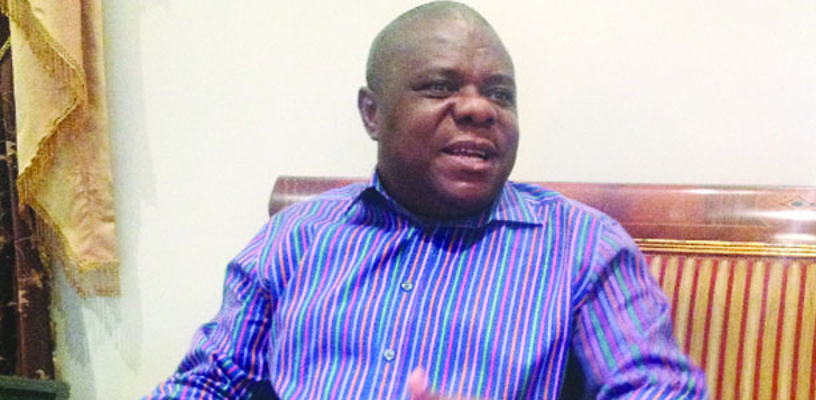Austin Okpara, a former Deputy Speaker of the House of Representatives, has commented on the recent Rivers Local Government elections, articulating that the outcomes reflect a broader public sentiment against oppression and dictatorship. He states that the results signify the citizens’ growing desire for self-governance and democratic representation, suggesting that the governor currently in office is more aligned with the people’s needs rather than embodying an authoritarian figure. Okpara emphasized that Rivers State, known for its oil wealth, has transitioned from a governance style reminiscent of autocratic leaders—like Adolf Hitler and Donald Trump—into one that prioritizes public service and community well-being.
In his appearance on Channels Television’s Sunday Politics, Okpara voiced strong disapproval of Nyesom Wike, the Minister of the Federal Capital Territory, who he accused of attempting to manipulate both the Peoples Democratic Party (PDP) and the All Progressives Congress (APC) within the state. Okpara indicated that his departure from Wike’s faction was due to significant ideological differences, particularly after Wike’s support for the APC during the 2023 presidential election, which Okpara deemed detrimental to the PDP. He underscored Wike’s controversial stance as a major factor contributing to the current political rift between them.
Despite the challenges posed by political withdrawals from both major parties, Okpara commended Governor Siminalayi Fubara’s decision to hold the local government elections on October 5. He highlighted the necessity of conducting these elections to ensure the state continues to benefit from federal allocations. Okpara argued that Fubara acted out of obligation to maintain the civil servant workforce at the local government level, illustrating that the governor’s actions transcended partisan lines and were ultimately for the public good. He portrayed Fubara as a leader willing to sacrifice party allegiance for the sake of democratic processes.
Okpara further contextualized the political landscape in Rivers State, asserting that the local government elections have established a sense of liberation among the populace. This liberation, he argued, is a direct result of a governance paradigm shift, from one where citizens feel oppressed to one where they believe their voices matter and can influence their leaders. He depicted the electorate’s enthusiastic turnout on election day as evidence of their wresting back control from what they perceived as a dictatorial regime.
The former Deputy Speaker’s comments also reflected a broader narrative about democratic governance in Nigeria. He pointed to the October 5 elections as a pivotal moment for Rivers State and as indicative of the electorate’s willingness to oppose ingrained authoritarianism. His assertion that the public is now more politically aware and willing to stand against oppressive governance suggests a potential shift towards more participatory politics in the region. Okpara’s analysis signifies an optimistic outlook for the state’s political future, highlighting voters’ empowerment through electoral participation.
Overall, Okpara’s interview serves as a critique of previous leadership styles while promoting Fubara’s approach to governance as a corrective measure for the state’s political trajectory. His insights could resonate with other political leaders in Nigeria, advocating for a focus on public service and accountability over dictatorial tendencies. As the political landscape in Rivers State evolves, the interplay between governance, party politics, and voter expectations will be crucial to shaping the future of democracy in the region.


